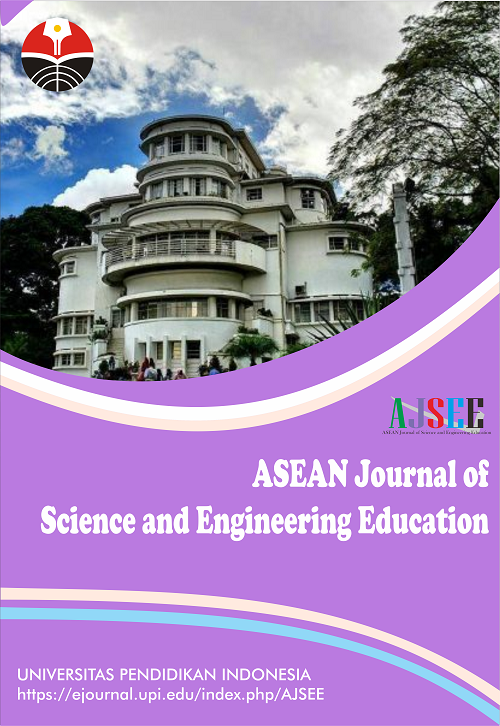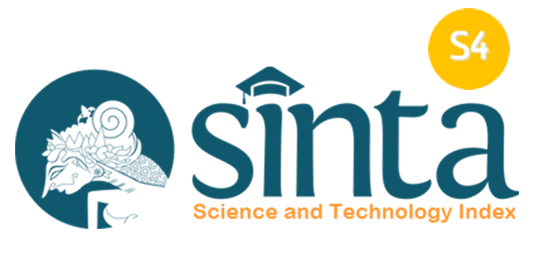Effect Glogster on Students’ Academic Achievement in Selected Basic Technology Concepts in Ilorin Metropolis
Abstract
This study examined the Effect of Glogster on students’ Academic Achievement in Selected Basic Technology Concepts in Ilorin Metropolis. The study adopted a quasi-experimental type, of pre-test, post-test, non-randomized, control group design. The design is a 2 x 2 factorial design. The sample for the study comprised of 24 males and 20 females (44) students selected from JSS II classes of selected two schools. School A was assigned as the experimental group, while School B was the control group. The purposive sampling technique was used to select intact classes used for the study. Four research questions were raised and answered, while two research hypotheses were formulated and tested. Descriptive and Inferential statistics were used to answer the research question and test the stated hypotheses with the aid of statistical product and service solution (SPSS) version 20.0 at a 0.05 level of significance. The findings indicated that there was no significant difference in the mean scores’ performance of male and female students that were exposed to Glogster and there was no significant difference between male and female students’ attitudes towards the use of Glogster for learning. The study concluded that learning can be enhanced among secondary school’ students if appropriate technology like Glogster is deployed for learning. Therefore, it was recommended that secondary school students be encouraged to deploy Glogster for learning irrespective of their gender.
Keywords
Full Text:
PDFReferences
Abimbade, O. A. (2011). University of Ibadan social science pre-service teachers’ gender perspective towards computer self-efficacy, internet skills and attitude towards educational blogging. Unpublished theses for Degree of Masters of Education (Educational Technology, University of Ibadan).
Adeoye, Y. M., Oluwole, A. F., and Blessing, L. A. (2013). Appraising the role of information communication technology (ICT) as a change agent for higher education in Nigeria. International Journal of Educational Administration and Policy Studies, 5(8), 177-183.
Aduwa-Ogiegbaen, S. E., and Iyamu, E. O. S. (2005). Using information and communication technology in secondary schools in Nigeria: Problems and prospects. Journal of educational technology and Society, 8(1), 104-112.
Al-Azawei, A., Parslow, P., and Lundqvist, K. (2017). Investigating the effect of learning styles in a blended e-learning system: An extension of the technology acceptance model (TAM). Australasian Journal of Educational Technology, 33(2), 1-23.
Allport, G. W. (1933). 1. Attitudes. terminology, 219.
Choudhary, R., and Choudhary, J. R. (2013). Use of ICTs: to promote good teaching and learning practices in higher management education. International Journal of Emerging Technology and Advanced Engineering, 3(6), 288-294.
Coutinho, C. (2007). Cooperative learning in higher education using weblogs: A study with undergraduate students of education in Portugal. Proceedings of the 5th International Conference on Education and Information Systems, Technologies and Applications (EISTA) (pp. 60–64). Orlando: EUA. Julho.
Dhawan, S. (2020). Online learning: A panacea in the time of COVID-19 crisis. Journal of Educational Technology Systems, 49(1), 5-22.
Ellison, N., and Wu, Y. (2008). Blogging in the classroom: A preliminary exploration of student attitudes and impact on comprehension. Journal of Educational Multimedia and Hypermedia, 17(1), 99-122.
Fadilah, M. U. H. Y. I. A. T. U. L., Permanasari, A. N. N. A., Riandi, R., and Maryani, E. (2020). The Level of disaster literacy of earthquake-experienced students in mathematics and science faculty of state university in Indonesia. Journal of Engineering Science and Technology (JESTEC) on AASEC2019, Februari, 2020, 30-38.
FRN - Federal Republic of Nigeria (2004). National policy on education. Lagos: Federal Ministry of Education.
Halic, O., Lee, D., Paulus, T., and Spence, M. (2010). To blog or not to blog: Student perceptions of blog effectiveness for learning in a college-level course. The Internet and Higher Education, 13(4), 206-213.
Krech, D., and Crutchfield, R. S. (1948). Beliefs and attitudes of men.
Lee, S. Y., Lee, S. W., and Kim, C. (2016). Time displacement effect of online video services on other media in South Korea. Telematics and Informatics, 33(2), 247-255.
Lin, X., and Gao, L. (2020). Students' Sense of Community and Perspectives of Taking Synchronous and Asynchronous Online Courses. Asian Journal of Distance Education, 15(1), 169-179.
Onasanya T.O., Onasanya S.A., Aladesusi G. A. and Aderele S. O. (2019): Effects of kahoot game of students’ academic achievement in selected computer concept in junior secondary school in Ilorin, Kwara State. Academic Journal of Research and Development (AJORAD), 12(1) 17-26.
Rodgers, S., and Chen, Q. (2002). Post-adoption attitudes to advertising on the internet. Journal of Advertising Research, 42(5), 95-104.
Taylor, P., and O’Reilly, B. (2021). Unlearning: A critical 21st-century skill for all. In Make Your Business Agile (pp. 72-80). Routledge.
Twigg-Flesner, A. (2018). The end of lifelong learning–where have all the mature undergraduate students gone? A literature review and practical recommendations from a case study in England. Perspectives on diverse student identities in higher education: International perspectives on equity and inclusion.
Williams, J. B., and Jacobs, J. (2004). Exploring the use of blogs as learning spaces in the higher education sector. Australasian journal of educational technology, 20(2), 232-247.
Yang, S. H. (2009). Using blogs to enhance critical reflection and community of practice. Journal of Educational Technology and Society, 12(2), 11-21.
DOI: https://doi.org/10.17509/ajsee.v2i1.37946
Refbacks
- There are currently no refbacks.
Copyright (c) 1970 Universitas Pendidikan Indonesia

This work is licensed under a Creative Commons Attribution-ShareAlike 4.0 International License.














